India's Critical Mineral Needs: Long-Term Supply & Battery Recycling - CareEdge
By Rediff Money Desk, Mumbai Nov 13, 2024 19:10
India faces limited critical mineral reserves, prompting CareEdge to urge securing long-term supplies, battery reuse, and recycling to reduce dependence on imports. Learn about India's EV and renewable energy ambitions and the impact on battery demand.
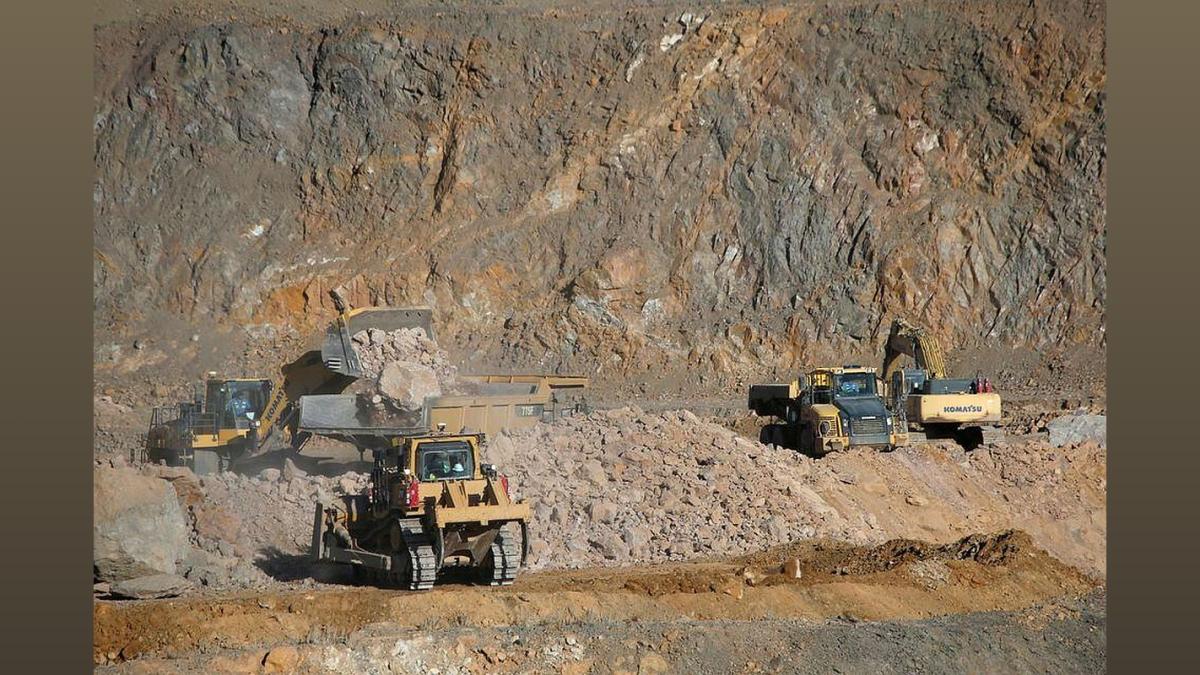
Photograph: Steve Marcus/Reuters
Mumbai, Nov 13 (PTI) With India having limited resources of lithium, cobalt, nickel and other critical minerals, domestic players need to secure long-term supply from countries having sizable reserves and focus on battery reuse and recycling, ratings agency CareEdge said on Wednesday.
This would provide environmental benefits and reduce price and supply risk associated with imports of these minerals, CareEdge said.
India has set an ambitious target to meet 50 per cent of its primary energy requirement from renewable energy sources by 2030 (as a percentage of annual sales).
To achieve this, India needs significant penetration of electric vehicles (EVs) as well as grid level energy storage capacity, the ratings agency said, and this envisaged transition would significantly increase India's need for advanced chemistry batteries, particularly lithium-ion (Li-ion) batteries, due to the limitations of traditional batteries like lead-acid and nickel-metal hydride batteries.
"The demand for lithium-ion battery storage in India is expected to grow significantly, driven predominantly by migration towards EVs and renewable energy storage requirements. Consequently, India's dependence on imports is expected to decline sharply to around 20 per cent by FY27 from near-full dependence presently, due to giga-size integrated battery capacities coming onstream in India," said Hardik Shah, Director at CareEdge Ratings.
Shah said since Li-ion battery manufacturing needs scarce minerals such as lithium, cobalt, and nickel, of which India has limited natural reserves, "domestic players need to secure long-term supply sources from countries having sizable reserves along with focus on battery reuse and recycling, which shall provide environmental benefits and reduce price and supply risk associated with imports of these minerals".
CareEdge said the relative cost-competitiveness of Indian manufacturers, in the context of capacity addition and pricing policy of large global integrated players, especially Chinese manufacturers, will be a key factor to monitor.
India, in the previous fiscal, had a demand for around 15 GWh of Li-ion battery storage, largely from EVs and consumer electronics, which is expected to reach around 54 GWh by FY27 and around 127 GWh by FY30, said CareEdge, adding that the demand is currently being met mostly through imports.
However, CareEdge Ratings expects India's import dependency to decline to around 20 per cent by FY27, despite significant growth in demand due to large scale integrated capacities being built for Li-ion battery storage.
It further said that the government has taken initiatives on several demand-side measures, such as Faster Adoption and Manufacturing of Electric Vehicles (FAME) scheme, Viability Gap Funding (VGF) scheme for Battery Energy Storage System (BESS), helping to bring down cost of EV and battery energy storage systems, thereby stimulating demand.
CareEdge Ratings also said it has considered a 20 per cent EV penetration by FY30, considering the slower-than-anticipated EV adoption in four-wheeler segment, amidst consumer preference for hybrid vehicles and the slow progress in EV charging infrastructure.
Government policies and incentives are expected to support build-up of giga-scale lithium-ion battery capacities, aided by Advanced Chemistry Cell (ACC) Production Linked Incentive (PLI) scheme, along with various state government incentives such as capital subsidies, electricity tax and stamp duty exemptions and interest subvention, the ratings agency said.
This would provide environmental benefits and reduce price and supply risk associated with imports of these minerals, CareEdge said.
India has set an ambitious target to meet 50 per cent of its primary energy requirement from renewable energy sources by 2030 (as a percentage of annual sales).
To achieve this, India needs significant penetration of electric vehicles (EVs) as well as grid level energy storage capacity, the ratings agency said, and this envisaged transition would significantly increase India's need for advanced chemistry batteries, particularly lithium-ion (Li-ion) batteries, due to the limitations of traditional batteries like lead-acid and nickel-metal hydride batteries.
"The demand for lithium-ion battery storage in India is expected to grow significantly, driven predominantly by migration towards EVs and renewable energy storage requirements. Consequently, India's dependence on imports is expected to decline sharply to around 20 per cent by FY27 from near-full dependence presently, due to giga-size integrated battery capacities coming onstream in India," said Hardik Shah, Director at CareEdge Ratings.
Shah said since Li-ion battery manufacturing needs scarce minerals such as lithium, cobalt, and nickel, of which India has limited natural reserves, "domestic players need to secure long-term supply sources from countries having sizable reserves along with focus on battery reuse and recycling, which shall provide environmental benefits and reduce price and supply risk associated with imports of these minerals".
CareEdge said the relative cost-competitiveness of Indian manufacturers, in the context of capacity addition and pricing policy of large global integrated players, especially Chinese manufacturers, will be a key factor to monitor.
India, in the previous fiscal, had a demand for around 15 GWh of Li-ion battery storage, largely from EVs and consumer electronics, which is expected to reach around 54 GWh by FY27 and around 127 GWh by FY30, said CareEdge, adding that the demand is currently being met mostly through imports.
However, CareEdge Ratings expects India's import dependency to decline to around 20 per cent by FY27, despite significant growth in demand due to large scale integrated capacities being built for Li-ion battery storage.
It further said that the government has taken initiatives on several demand-side measures, such as Faster Adoption and Manufacturing of Electric Vehicles (FAME) scheme, Viability Gap Funding (VGF) scheme for Battery Energy Storage System (BESS), helping to bring down cost of EV and battery energy storage systems, thereby stimulating demand.
CareEdge Ratings also said it has considered a 20 per cent EV penetration by FY30, considering the slower-than-anticipated EV adoption in four-wheeler segment, amidst consumer preference for hybrid vehicles and the slow progress in EV charging infrastructure.
Government policies and incentives are expected to support build-up of giga-scale lithium-ion battery capacities, aided by Advanced Chemistry Cell (ACC) Production Linked Incentive (PLI) scheme, along with various state government incentives such as capital subsidies, electricity tax and stamp duty exemptions and interest subvention, the ratings agency said.
Source: PTI
Read More On:
DISCLAIMER - This article is from a syndicated feed. The original source is responsible for accuracy, views & content ownership. Views expressed may not reflect those of rediff.com India Limited.
You May Like To Read
TODAY'S MOST TRADED COMPANIES
- Company Name
- Price
- Volume
- Srestha Finvest
- 0.65 (+ 1.56)
- 24601753
- Suzlon Energy Ltd.
- 62.37 (+ 5.00)
- 14611077
- Vodafone Idea L
- 7.34 (+ 1.24)
- 7211982
- GTL Infrastructure
- 2.11 (+ 0.48)
- 7152889
- AvanceTechnologies
- 0.99 ( 0.00)
- 5935249
MORE NEWS
Sensex, Nifty Rebound: Value-Buying, Blue-Chip...
Indian stock markets rebounded in early trade on Tuesday, driven by value-buying,...

Rupee Gains 2 Paise, Closes at 84.40 vs Dollar
The Indian rupee rose 2 paise to 84.40 against the US dollar in early trade on Tuesday,...

Punit Goenka Resigns as Zee MD, Appointed CEO
Punit Goenka steps down as Managing Director of Zee Entertainment, assuming the role of...



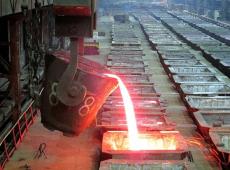




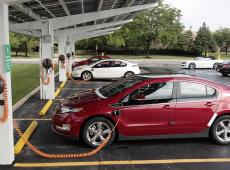
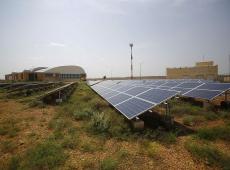
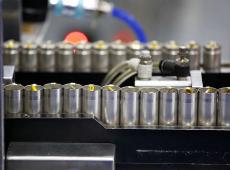
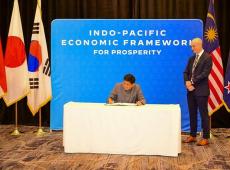
 © 2024 Rediff.com India Limited. All rights reserved.
© 2024 Rediff.com India Limited. All rights reserved.